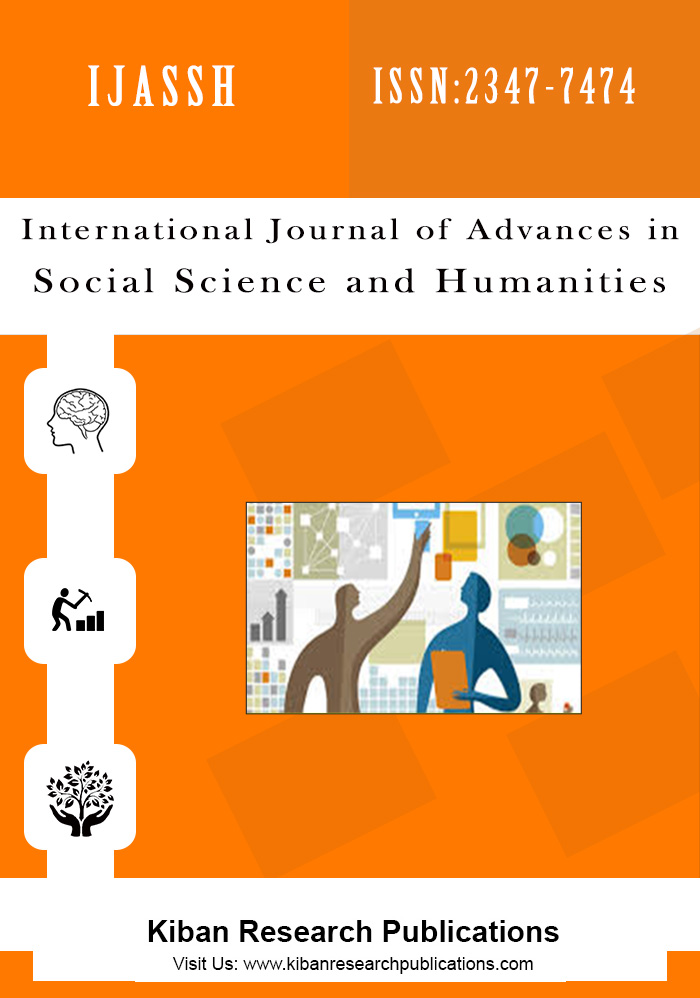EMPLOYEE SATISFACTION IN THE ORGANIZATION IN ANAAMALAIS TOYATA COIMBATORE
Keywords:
Satisfaction, Level of Management, Employee, Employer, Relationship.Abstract
The main aim of this research is to know the Employee’s Satisfaction in Organization followed in the organization. The study is descriptive in nature. The objective of the study is to know the employees perception towards HR practices such as perception of internal communication level of training and development performance management, to find out whether the employees are satisfied with the HR Practices followed in the organization. The sample size is 115. The sample method used for this study is the Percentage Analysis, Correlation and Chi-Quare. The data has been collected through a well-structured questionnaire and has been analyzed with the help of SPSS package. Despite academic critiques, employee engagement practices are well established in the management of human resources and of internal communications. Employee engagement today has become synonymous with terms like 'employee experience' and 'employee satisfaction'. The relevance is much more due to the vast majority of new generation professionals in the workforce who have a higher propensity to be 'distracted' and 'disengaged' at work.
Keywords: Satisfaction, Level of Management, Employee, Employer, Relationship.
References
Archie Thomas, CMA, and Ann MacDi Anmid (2004), “Encouraging Employee Engagement”, CMA Management.
Fred, Luthans and Suzanne, J. Peterson (2002), “Employee engagement and manager self-efficacy”, Journal of Management Development, Vol. 21 No.5, pp.376-387
Gretcher Hoover, (2005), “Maintaining Employee Engagement when communicating difficult issues”, Communication World.
Jteresko, “Driving employee engagement”, www.industryweek.com, Sep 2004.
Locke E.A. (1976), The Nature and Causes of Job Satisfaction. Handbook of Industrial and Organizational Psychology. Chic. Rand Mc Narlly. Vol. 2, pp.360-580
Murugeswari, S., Jambulingam, S., Velmurugan, B. and Binith Muthukrishnan K. (2022), "Challenges of women leaders and managerial effectiveness in it industry in Coimbatore", Ann. for. Res, Vol. 65 No. 1, pp. 6725-6731.
Nivethigha, R. P., Divyabharathi, S., Velmurugan B. (2017), "Business ethics, values and social responsibility to an entrepreneur", International Journal of Research in Management & Business Studies, Vol. 4 No. 4, pp.18-21.
Sangeetha, M., Tamilselvi, V. and Velmurugan. B. (2023), "A study on employee absenteeism: Study at Sri Vinayaga Containers, Dindigul,”International Research Journal Education and Technology, Vol.5 No.6,pp.140-143.
Steve Batts (2004), “Getting engaged”, HR Magazine society for Human Resource Management.
Velmurugan, B., Divya Bharathi B. and Binith Muthukrishnan, K. (2023), “HR Analytics and its moderating factors-A review in kasim textile mill private Ltd, Madurai, International Journal of Interdisciplinary Research in Arts and Humanities, Vol. 8 No. 1,74-77.
Velmurugan, B., et al. (2024), "AI Insights Deciphering India's Ascendancy Through the Digital Library: Navigating the Digital Realm India's Odyssey Towards Information Equity and Technological Eminence." Improving Library Systems with AI: Applications, Approaches, and Bibliometric Insights. IGI Global, pp. 285-293.
Smith, P. C., Kendall, L. M. and Hulin, C. L. (1969), “Job Descriptive Index”, APA Psyc Tests.
Published
How to Cite
Issue
Section
Copyright (c) 2024 Priya Dharshini S., Guruvikram J., Velmurugan B.

This work is licensed under a Creative Commons Attribution 4.0 International License.




